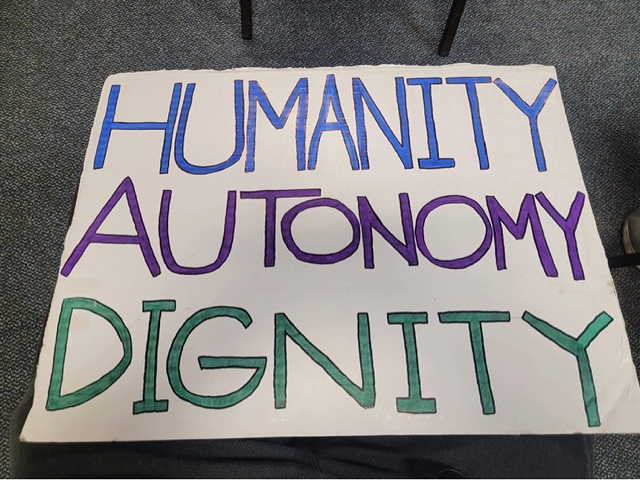August 24, 2022
Montpelier has become the second city in Vermont to repeal its antiquated prostitution ordinance in the past year. Last summer, the Burlington City Council voted to repeal that city’s prostitution ordinance and voters subsequently chose to strike discriminatory and archaic language on sex work from the city charter.
Montpelier’s Police Review Committee recommended that the ordinance be repealed as its stigmatizing and discriminatory language was harmful to both consensual adult sex workers and individuals experiencing exploitation. They suggested that law enforcement should concentrate on combating human trafficking, instead of on prohibiting consensual acts between adults. The committee also noted that most municipalities in Vermont do not have ordinances banning prostitution and that repealing the language would bring Montpelier in line with the rest of the state. Though bills proposing to decriminalize prostitution were introduced during the past two legislative sessions, they did not advance and prostitution remains criminalized at the state level.
The Montpelier City Council held two public hearings on the proposal to repeal the ordinance before unanimously voting in favor of striking it. Both hearings were well attended and individuals in favor of and against repealing the ordinance testified passionately. Members of The Ishtar Collective, Vermont’s only organization run by and for sex workers and survivors of exploitation or trafficking, asked the City Council and their neighbors to recognize them as equals deserving of dignity. They said the immensely dehumanizing language of the ordinance, which did nothing to support the health and wellbeing of residents, perpetuated stigma around sex work, and made them feel unwelcome in the place they call home. Henri Bynx, co-founder of The Ishtar Collective, reminded council members and others in attendance that sex workers are vital and integral members of the community.
Opponents of the repeal were mostly from out of state. Morally opposed to consensual adult sex work, they urged the council to keep or replace the ordinance with even more punitive language. Their attempts at fear mongering — and admonishments that repealing the ordinance would lead to individuals having sex in public and an increase in trafficking, particularly of minors — perpetuated dangerous and misguided tropes around sex work. Dr. Stephany Powell, with the National Center on Sexual Exploitation, said, “You are inviting more crime into your area, and you are also allowing the ability of sex workers to roam freely in your community. … I’m telling you: you don’t want that.” J. Leigh Oshiro-Brantly, a sex worker who co-founded The Ishtar Collective with Bynx, responded to Powell’s derogatory remarks during their statement. “We’re already ‘roaming’ and that … metaphor of roaming like cattle is really part of that dehumanizing language. This is the stigma we’re talking about,” Oshiro-Brantly said. “I’ve heard things (tonight) like ‘demeaning,’ ‘immoral,’ ‘just plain wrong.’ All of these things are moral judgments that no person has a right to make for any other person’s life.”
Just prior to their vote, council members, including Mayor Anne Watson, reminded everyone in attendance that they are committed to ending exploitation and trafficking in all labor sectors. They then voted unanimously to repeal the discriminatory language, affirming that sex workers are deserving of their dignity, humanity, and bodily autonomy.

A sign at the August 24 Montpelier City Council Meeting. Courtesy of The Ishtar Collective.
DSW Newsletter #39 (August 2022)
Operation Cross Country: The FBI’s Annual Anti-Trafficking Performance

Montpelier, VT Repeals Prostitution Ordinance

Possessing Condoms Shouldn’t Be a Crime

DSW Staff Attend Key Conferences Around the World

